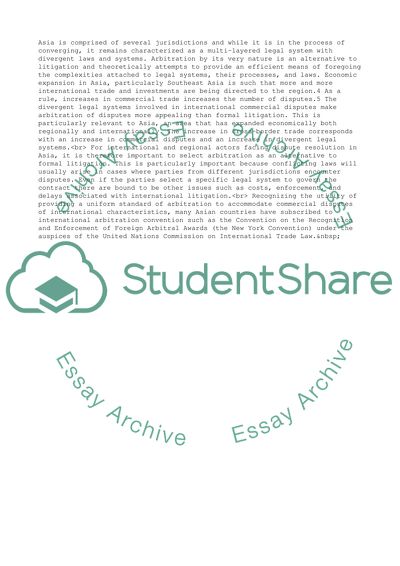Cite this document
(Selecting an Arbitration Forum in Asia Research Proposal, n.d.)
Selecting an Arbitration Forum in Asia Research Proposal. Retrieved from https://studentshare.org/business/1729131-selecting-a-arbitration-forum-in-asia
Selecting an Arbitration Forum in Asia Research Proposal. Retrieved from https://studentshare.org/business/1729131-selecting-a-arbitration-forum-in-asia
(Selecting an Arbitration Forum in Asia Research Proposal)
Selecting an Arbitration Forum in Asia Research Proposal. https://studentshare.org/business/1729131-selecting-a-arbitration-forum-in-asia.
Selecting an Arbitration Forum in Asia Research Proposal. https://studentshare.org/business/1729131-selecting-a-arbitration-forum-in-asia.
“Selecting an Arbitration Forum in Asia Research Proposal”, n.d. https://studentshare.org/business/1729131-selecting-a-arbitration-forum-in-asia.


